STATEHOUSE REPORT | ISSUE 23.30 | July 26, 2024
BIG STORY: Trump policies could hurt S.C.’s prosperity, experts say
MORE NEWS: Obamacare enrollment up 50% in S.C.
LOWCOUNTRY, Ariail: Good news, bad news
COMMENTARY, Brack: Laud Biden’s leadership, patriotism
SPOTLIGHT: S.C. Institute for Independent Journalism
MYSTERY PHOTO: Outdoor scene
FEEDBACK: Send us your thoughts
Trump policies could risk S.C.’s trade-based prosperity, experts say

By Jack O’Toole, Capitol bureau | Former President Donald Trump effectively doubled down on the populist tariff and immigration policies that helped fuel his surprise victory in 2016 by choosing Ohio Sen. J.D. Vance as his running mate at last week’s Republican convention. And according to political and economic experts, that selection is likely to play particularly well among working-class voters in the critical swing states of the nation’s industrial Midwest.
“J.D. Vance’s story will resonate with blue-collar workers in the ‘Blue Wall’ states of Michigan, Wisconsin and Pennsylvania,” Winthrop political scientist Scott Huffmon told City Paper in an interview this week. “Trump needs to flip at least one of those, and that’s one of the big reasons he picked Vance over the others.”
S.C. Gov. Henry McMaster also believes Vance has strong appeal.
“I think J.D. Vance is perfect,” McMaster told Forbes from the convention floor just moments after the choice was announced. “They think alike, they like each other and they want to take the country in the same direction. I think they’ll be a great, great team — maybe the perfect team.”
But back in the Palmetto State where the economy is booming thanks largely to free trade, foreign investment and flexible labor markets, business leaders and experts are beginning to wonder what price South Carolinians could wind up having to pay for Trump’s Midwest-friendly politics.
“Over the past five decades, the Southeast has really been subjected to the forces of free trade, and as a result we’ve become very resilient and competitive in the global marketplace,” said Russell Sobel, a professor of economics and entrepreneurship at The Citadel. “So we’ve really benefited from that, as opposed to some other regions that haven’t historically been as consistent with lowering the cost of business.”
In short, South Carolina has worked hard to become a winner in the global economy, with international companies like BMW, Michelin and Samsung now beating a path to its door. And that makes the question of how Trumponomics would impact Palmetto State businesses and workers become a critical issue for South Carolinians in this year’s presidential contest.
Trouble ahead?
When people say South Carolina’s economic boom is inextricably tied to global commerce, they have the numbers to back it up.
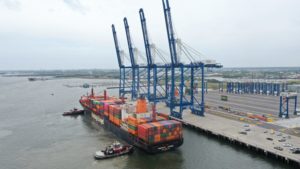
According to state and federal statistics, South Carolina exported $37 billion in goods like cars, tires and appliances to foreign markets in 2023 — a 42% increase over the past decade. Almost 600,000 South Carolinians, or 20% of the workforce, hold jobs directly linked to trade. And at last count, more than 6,500 S.C. businesses actively exported their goods and services to customers all over the world.
Experts say Trump’s proposed 10% across-the-board tariff, coupled with his suggested tariff of 60% on Chinese goods, could threaten South Carolina’s success in three principal ways.
First, it could invite foreign countries to retaliate with tariffs against U.S. goods, placing the state’s $37 billion in international trade at risk.
“Anytime you implement a tariff, you always open yourself up to retaliatory tariffs from other countries,” said Joseph Von Nessen, an economist at the University of South Carolina’s Darla Moore School of Business. “That’s a risk that would emerge.”

That said, Von Nessen stressed the risk would depend on the exact nature of any tariffs a future President Trump ultimately decided to implement.
“Not all tariffs are created equal,” he said. “So they have to be examined on an industry-by-industry and case-by-case basis.”
The second major concern involves tariff-inflated prices, which the nonpartisan Petersen Institute for International Economics estimates would cost the average South Carolina family $1,700 per year.
“The scale of trade barriers proposed by candidate Trump is unprecedented,” according to Petersen’s May 2024 report. “Studies convincingly find no evidence of terms-of-trade benefits for the United States from these tariffs. Rather, the data show that higher tariffs are fully reflected in higher prices for U.S. buyers.”
These increased costs, experts say, would have an outsized impact in South Carolina, where despite progress in recent years, incomes remain well below the national average.
Finally, the proposed Trump tariffs would hit South Carolina’s small and medium-sized businesses — which represent 85% of Palmetto State exporters — with particular force.
“Tariffs aren’t the answer, and they never work for their intended purpose,” said S.C. Small Business Chamber of Commerce President Frank Knapp. “(Instead), they hurt small businesses that benefit from trade, and that also benefit when new manufacturers come into the state.”
Immigration restrictions and the specter of inflation
The other aspect of Trumponomics that concerns experts is the potential impact of large-scale migrant-worker deportations on the state’s labor market.
“Any reduction in immigration for any reason reduces the supply of labor and that puts upward pressure on wages,” USC’s Von Nessen said. “And we are already in a very tight labor market, particularly in South Carolina.”
And once again, small business leaders say they would be hardest hit, at least initially, by the resulting wage inflation.

“The number one problem small businesses in South Carolina cite is the labor shortage,” Knapp said. “So you can’t pull workers out of the state without forcing businesses to increase pay — and small businesses aren’t in a position to do that.”
Of course, so-called conservative populists like Trump and Vance would argue that raising wages is the point.
“I think the economics profession is fundamentally wrong about both immigration and about tariffs,” Vance said in a May interview with New York Times columnist Ross Douthat. “Yes, tariffs can apply upward pricing pressure on various things — though I think it’s massively overstated — but when you are forced to do more with your domestic labor force, you have all of these positive dynamic effects.”
If the Trump-Vance ticket carries one or more of the Midwestern swing states that it’s aggressively courting and wins the election this fall, that judgment about the economics profession will be put to the test — here in South Carolina and across the country.
And that test would come quickly — because just last month, the economists at Moody’s Analytics modeled Trump’s economic policies and predicted the country would see a new round of inflation and a possible recession in 2025 if his proposals were fully implemented.
- Have a comment? Send to: feedback@statehousereport.com.
Obamacare enrollment up 50% in S.C.
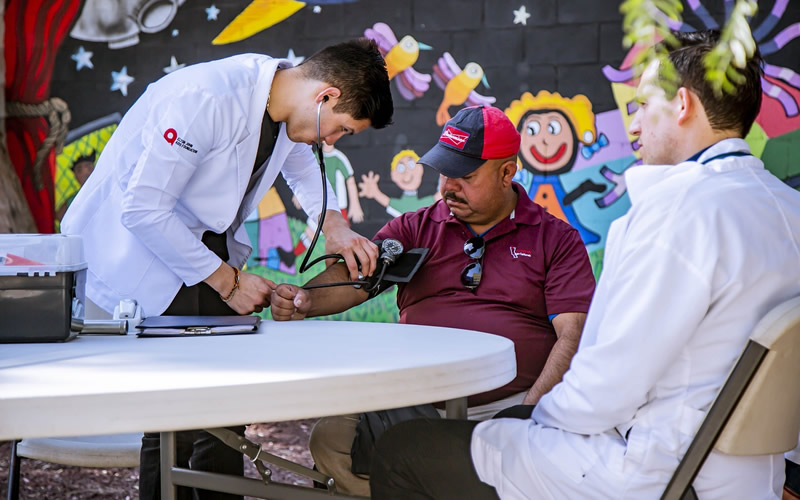
By Jack O’Toole, Capitol bureau | More than 570,000 South Carolinians purchased health insurance for 2024 through the Affordable Care Act (ACA) website, a jump of about 50% from last year, according to the Centers for Medicare and Medicaid Services.
Signed into law by President Barack Obama in 2010, the ACA allows working Americans to buy private health insurance policies from companies like BlueCross BlueShield, Cigna and UnitedHealthcare at subsidized rates. The law is sometimes called “Obamacare.”
Experts attribute this year’s sharp rise to two factors: the end of expanded Covid-era Medicaid benefits in May 2023 and enhanced ACA subsidies under 2022’s Inflation Reduction Act.
Steve Skardon, former CEO of the nonprofit Palmetto Project, called the numbers “incredibly good news” in a Thursday interview.
“What these numbers mean for South Carolina is that we have a healthier workforce,” Skardon said. “It makes South Carolina much more of a place where new businesses can prosper and workers can get access to the health care they need.”
But Skardon says it took far too long for S.C. to reach this point – mostly due to state officials’ hostility toward the ACA.
“Our state government has never been supportive of the ACA,” he said. “So, initially there was a lot of misinformation out there.”
With that challenge in mind, the Palmetto Project became a federally-recognized ACA navigator in 2014, working directly with residents to help them understand their options under the program. And four years later, it founded Insure SC, the country’s only statewide nonprofit insurance company, offering South Carolinians subsidized coverage options via a toll-free number: (888) 998-4646.
“Insure SC is all about providing eligibility information and assisting people in making their choices,” Skardon said, noting the nonprofit’s agents are not paid a commission. “Their only mission is to help you find the right plan for you.”
At present, more than 500,000 South Carolinians remain uninsured. S.C. is one of 10 states that has opted not to expand Medicaid under the ACA – a move that advocates say would cover about 360,000 Palmetto State residents with the federal government picking up over 100% of the cost in the first three years and 90% thereafter.
In other recent news:
![]() Audit underway into S.C.’s $1.8B mystery. The state of South Carolina will pay a Washington, D.C.-based financial advisory and consulting firm as much as $3 million to conduct a forensic audit into an unallocated $1.8 billion.
Audit underway into S.C.’s $1.8B mystery. The state of South Carolina will pay a Washington, D.C.-based financial advisory and consulting firm as much as $3 million to conduct a forensic audit into an unallocated $1.8 billion.
With $200M, SCDOT adds 120 bridges to construction list. An infusion of cash from the General Assembly will allow the state Department of Transportation to fix more of SC’s aging bridges.
Much of S.C. continues to face persistent drought. The state has been in the midst of a drought since June, with all counties being affected to some degree and 19 counties, mostly in the Pee Dee and Midlands, reaching severe drought status.
S.C. missing out on millions of dollars in taxes. The S.C. Department of Revenue updated its list Monday on the businesses and people who are not paying their fair share in taxes.
The number of electric vehicles in S.C. continues to grow. The number of electric vehicles registered in South Carolina now tops 20,000, according to state data.
State allots $1M to advertise Charleston’s International African American Museum. In its first year, the museum reported nearly 200,000 visitors, and created an economic impact of more than $82 million.
Good news, bad news
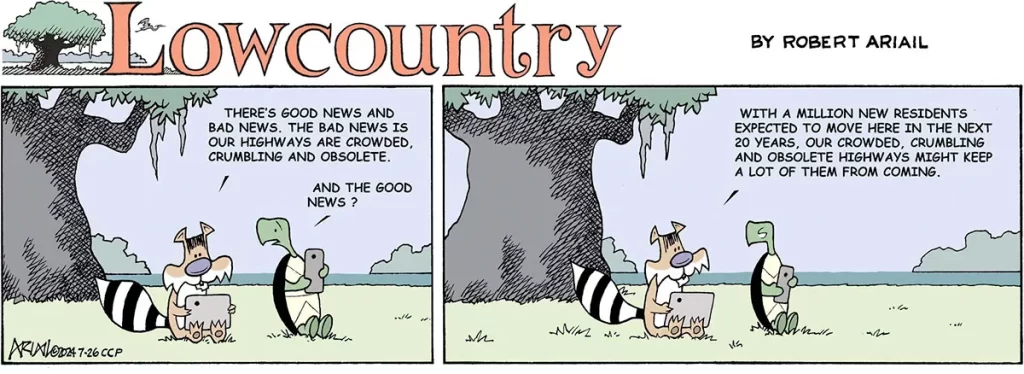
Nationally award-winning cartoonist Robert Ariail always has an interesting take. This week, he takes aim at the state’s highway system. What do you think … love it or hate it? Send your thoughts to feedback@statehousereport.com.
Laud Biden’s leadership, patriotism, duty
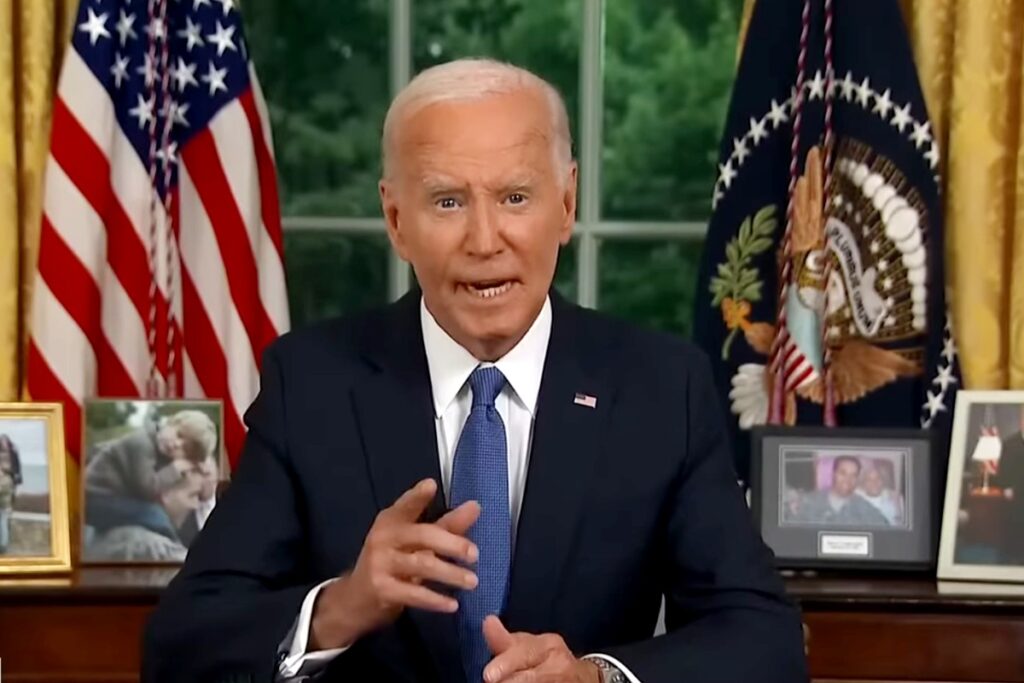
By Andy Brack | I’m proud of Joe Biden. There, haters, I said it.
But you should be proud of the president, too.
 Joe Biden, dogged this month by worries about the durability of his presidential reelection campaign, put our country before personal ambition to try to keep America on the path of being a real representative democracy.
Joe Biden, dogged this month by worries about the durability of his presidential reelection campaign, put our country before personal ambition to try to keep America on the path of being a real representative democracy.
Stepping away his reelection campaign was an act of selfless leadership that distinguishes Biden completely from his now-former opponent, America’s narcissist-in-chief. Former GOP President Donald Trump wouldn’t know selflessness if it hit him smack in the face with a cast-iron frying pan.
What Biden did by stepping away from the Democratic nomination and endorsing Vice President Kamala Harris recalls actions of three former presidents, the first, second and the 36th, some of which was highlighted this week by historian Heather Cox Richardson:
“Biden followed the example of the nation’s first president, George Washington, who declined to run for a third term to demonstrate that the United States of America would not have a king, and of its second president, John Adams, who handed the power of the presidency over to his rival Thomas Jefferson and thus established the nation’s tradition of the peaceful transition of power. Like them, Biden gave up the pursuit of power for himself in order to demonstrate the importance of democracy.”
Biden’s intentional demonstration of putting country first also recalls President Lyndon Johnson. In the spring of 1968, he announced in 1968 to much surprise that he would not seek reelection, which was not assured as America faced divisive fissures from the U.S. war in Vietnam and racial tension. In words thematically similar to some used this week by Biden, Johnson said then, “I do not believe that I should devote an hour or a day of my time to any personal partisan causes or to any duties other than the awesome duties of this office—the presidency of your country.”
In an address to the nation this week, Biden essentially turned the keys of our democracy to where it’s always been – with voters.
“We are a nation of promise and possibilities, of dreamers and doers, of ordinary Americans doing extraordinary things,” Biden said with conviction. “I’ve given my heart and my soul to our nation, like so many others. …
“The great thing about America is, here kings and dictators do not rule—the people do. History is in your hands. The power’s in your hands. The idea of America lies in your hands. You just have to keep faith—keep the faith—and remember who we are: We are the United States of America, and there is simply nothing, nothing beyond our capacity when we do it together. So let’s act together, [and] preserve our democracy.”
Strong words that followed 41 months of strong action. And if you don’t believe Biden and his team have been successful in really helping a red state like South Carolina, there’s no refuting these compelling numbers:
$5.4 billion in public investments in South Carolina manufacturing, infrastructure and clean energy, including $4.9 billion in funding for 337 infrastructure projects. Investments were in roads and bridges ($2.7 billion), public transit ($235 million), airports ($123 million) and ports and waterways ($22 million). Without Joe Biden, those investments wouldn’t have happened.
$1.2 billion for affordable high-speed internet in the Palmetto State.
$317 million for clean water projects, including almost $100 million to replace toxic lead pipes.
Big savings for 1.2 million seniors and Medicare beneficiaries on prescription drug costs.
The state also has a 3.4% unemployment rate and 251,000 new jobs thanks, in part, to the administration’s economic policies that transformed a sputtering Covid-saturated economy into one targeted on more and better jobs.
If you don’t like Joe Biden, so be it. But you have to give him credit for a style of positive, heritage-inspired American leadership that’s been missing for awhile.
Andy Brack is editor and publisher of the Charleston City Paper and Statehouse Report. Have a comment? Send to: feedback@statehousereport.com.
- Have a comment? Send to: feedback@statehousereport.com.
S.C. Institute for Independent Journalism
 Statehouse Report is brought to you for free thanks to underwriters like the South Carolina Institute for Independent Journalism, which supports the development and production of independent and nonprofit news in South Carolina to promote democratic ideals.
Statehouse Report is brought to you for free thanks to underwriters like the South Carolina Institute for Independent Journalism, which supports the development and production of independent and nonprofit news in South Carolina to promote democratic ideals.
SCIIJ achieves its mission by providing financial and organizational support to community publications; operating civic engagement initiatives; training promising journalists; and producing bold independent journalism.
Outdoor scene
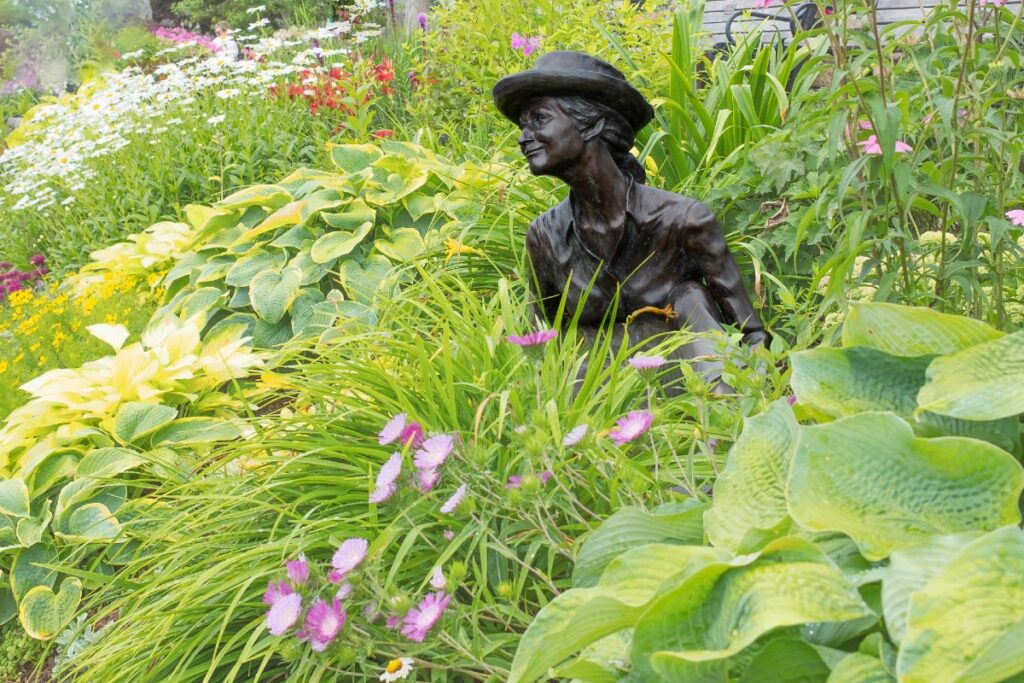
Technically, this outdoor scene sent in by a reader isn’t in South Carolina – but it’s very close and it has particular relevance to people from the Palmetto State, the photographer says. Where is it? What is it? Send your name, hometown and guess to: feedback@statehousereport.com.
 Last week’s mystery, “Portrait,” showed a relatively new portrait of a younger Robert Smalls, the Reconstruction congressman from South Carolina known for his Civil War exploits on behalf of the Union. We saw the 2023 painting by artist Jace Yasmeen in the International African American Museum.
Last week’s mystery, “Portrait,” showed a relatively new portrait of a younger Robert Smalls, the Reconstruction congressman from South Carolina known for his Civil War exploits on behalf of the Union. We saw the 2023 painting by artist Jace Yasmeen in the International African American Museum.
Congrats to a few sleuths who correctly identified it: Barry Wingard of Florence; John Hart and Elizabeth Jones, both of Columbia; Pat Keadle of Perry; Willard Strong of Surfside Beach; George Graf of Palmyra, Va.; and Thomas Jacobsen of Sitka, Alaska.
- Send us a mystery picture. If you have a photo that you believe will stump readers, send it along (but make sure to tell us what it is because it may stump us too!) Send to: feedback@statehousereport.com and mark it as a photo submission. Thanks.
Send us your thoughts
We encourage you to send in your thoughts about policy and politics impacting South Carolina. We’ve gotten some letters in the last few weeks – some positive, others nasty. We print non-defamatory comments, but unless you provide your contact information – name and hometown, plus a phone number used only by us for verification – we can’t publish your thoughts.
- Have a comment? Send your letters or comments to: feedback@statehousereport.com. Make sure to provide your contact details (name, hometown and phone number for verification. Letters are limited to 150 words.
ABOUT STATEHOUSE REPORT
Statehouse Report, founded in 2001 as a weekly legislative forecast that informs readers about what is going to happen in South Carolina politics and policy, is provided to you at no charge every Friday.
- Editor and publisher: Andy Brack, 843.670.3996
- Statehouse bureau chief: Jack O’Toole
Donate today
We’re proud to offer Statehouse Report for free. For more than a dozen years, we’ve been the go-to place for insightful independent policy and political news and views in the Palmetto State. And we love it as much as you do.
But now, we can use your help. If you’ve been thinking of contributing to Statehouse Report over the years, now would be a great time to contribute as we deal with the crisis. In advance, thank you.
More
- Mailing address: Send inquiries by mail to: P.O. Box 21942, Charleston, SC 29413
- Subscriptions are free: Click to subscribe.
- We hope you’ll keep receiving the great news and information from Statehouse Report, but if you need to unsubscribe, go to the bottom of the weekly email issue and follow the instructions.
- Read our sister publication: Charleston City Paper (every Friday in print; Every day online)
- © 2024, Statehouse Report, a publication of City Paper Publishing, LLC. All rights reserved.


